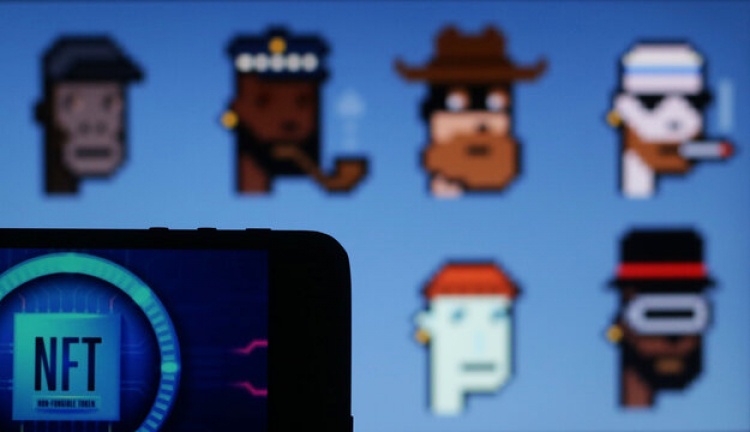Non-Fungible Tokens (NFTs) have emerged as a groundbreaking technology that is transforming the world of digital collectibles. NFTs represent unique assets on the blockchain, such as art, music, virtual real estate, and more, allowing creators and collectors to monetize and trade their one-of-a-kind creations. As the demand for NFTs continues to soar, businesses and entrepreneurs are looking to capitalize on this trend by developing their NFT marketplace apps. In this blog, we will explore the exciting realm of NFT marketplace app development and its potential to revolutionize the way we engage with digital assets.
Understanding NFT Marketplace Apps
NFT marketplace apps are mobile applications that enable users to buy, sell, and trade NFTs seamlessly. These apps provide an intuitive and user-friendly interface, allowing creators to showcase their digital works, and collectors to discover and purchase unique NFTs. NFTs are stored and secured on the blockchain, ensuring transparency, authenticity, and provenance for each digital asset.
Key Features of NFT Marketplace Apps
User Wallet Integration: NFT marketplace apps require integration with cryptocurrency wallets to enable secure and seamless transactions. Users can connect their wallets to the app, facilitating purchases and asset management.
NFT Minting and Listing: Creators can mint their digital assets as NFTs directly within the app. They can then list these NFTs on the marketplace for potential buyers to explore.
Search and Discovery: A robust search and discovery feature allows users to find NFTs based on categories, artists, popularity, and other filters. This enhances the overall user experience and makes it easier for collectors to find unique pieces.
Bidding and Auctions: Implementing bidding and auction functionalities enables users to participate in competitive bidding for exclusive NFTs, fostering a sense of excitement and engagement within the community.
Royalties and Smart Contracts: NFT marketplace apps should incorporate smart contracts to ensure that creators receive royalties whenever their NFTs are resold. This feature incentivizes artists and content creators to continue producing valuable digital assets.
Social Sharing and Interactions: Social sharing capabilities within the app allow users to showcase their NFT collections and interact with other members of the community. This fosters a sense of belonging and encourages networking.
Authentication and Verification: To ensure authenticity and avoid counterfeit NFTs, app developers should implement robust authentication and verification mechanisms. This guarantees that each NFT listed on the platform is genuine and backed by the original creator.
NFT Marketplace App Development Process
Ideation and Market Research: Define your app's unique value proposition and conduct market research to understand user preferences, potential competitors, and market trends. This information will serve as a foundation for your app's development.
Blockchain Selection: Choose the most suitable blockchain for your NFT marketplace app. Ethereum is the most common choice due to its well-established infrastructure, but other blockchains like Binance Smart Chain and Flow are also gaining popularity.
Smart Contract Development: Develop smart contracts that govern the creation, ownership, and transfer of NFTs on your app. Experienced blockchain developers can code these contracts using languages like Solidity.
User Interface and Experience Design: Create an intuitive and visually appealing user interface that prioritizes ease of use and engages users effectively. Ensure that your app is responsive and optimized for both Android and iOS devices.
Wallet Integration: Integrate popular cryptocurrency wallets, such as MetaMask or Trust Wallet, to facilitate secure transactions and asset management for your users.
Security and Testing: Conduct thorough security audits and testing to identify and fix any vulnerabilities in your app. Security is paramount in the blockchain space, and users must trust your app to handle their valuable digital assets.
Launch and Marketing: Once your NFT marketplace app is ready, launch it on app stores and leverage digital marketing strategies to attract users and creators to your platform. Engage with the community and listen to feedback for continuous improvement.
Conclusion
NFT marketplace app development opens up a world of opportunities for businesses and entrepreneurs to tap into the rapidly growing NFT ecosystem. By providing a seamless and user-friendly platform, these apps empower creators to monetize their digital assets and enable collectors to discover and own unique pieces of digital history. With the blockchain technology ensuring transparency and authenticity, NFT marketplace apps represent the future of digital collectibles and have the potential to reshape the way we interact with art, music, and other forms of creative expression. As the NFT space continues to evolve, embracing this innovative technology through marketplace app development can unlock a world of new possibilities for creators, collectors, and businesses alike.


No comments yet